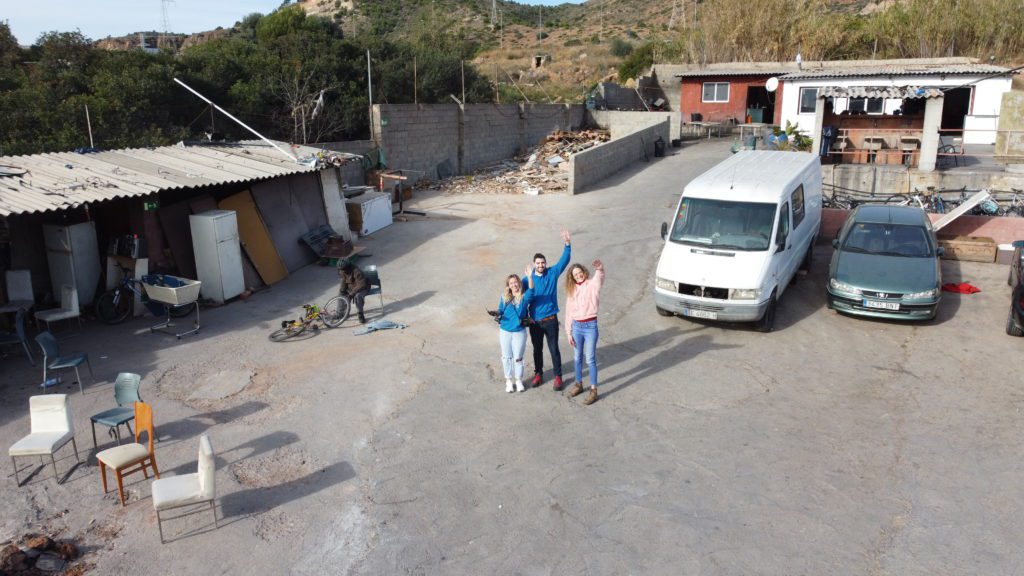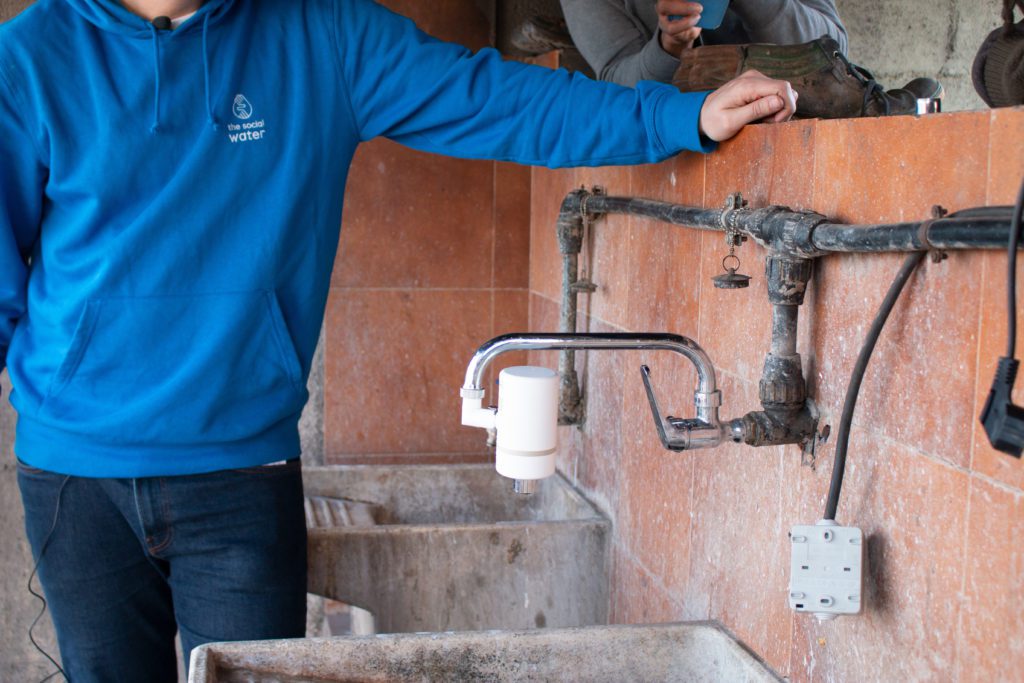In Spain, there are people living with non-potable water or that do not have access to safe water. What we found on our first visit to La Casa Nueva in Sagunto (Valencia) is still difficult for us to accept. How is it possible that a few kilometres from a city where thousands of litres of drinking water are wasted, there are people who are consuming non-potable water? In the XXI century and in a country like Spain, there are people who live without the minimum rights. That is the reality.
A series of coincidences led us to learn about what it is like for the residents of La Casa Nueva, a temporary reception centre (TRC) located in the Valencian municipality of Sagunto. As a TRC its main function is to be a temporary residence for immigrants from sub-Saharan Africa (Mali, Senegal, Gambia, Guinea, Mauritania, Ghana, Niger, Burkina Faso, Ivory Coast…). It has a total capacity of accommodating 80 people and as of November 2021, when we started the study, 55 people were residing there.

For over 15 years the residents of La Casa Nueva had not had access to safe drinking water, a situation that we resolved thanks to the collaboration with the association La Casa Nueva, Ayuda Una Familia and Arquitectura Sin Fronteras. To carry out our project, it was also necessary to install a pressure pump that is operated thanks to the solar energy system installed by our friends at Light Humanity.
Safe drinking water in La Casa Nueva after 15 years
Before the installation of the new system, water was supplied through a 20,000-liter water tank that the City of Sagunto refilled with a tanker truck. Thanks to the collaboration of the Ambientalys laboratory, we were able to detect that this water was not potable, since it contained bacteria and pathogens that made it not recommended for consumption.

Once all the options were studied, we agreed that the best solution was the installation of our Social Tap filter, which eliminates 99.99% of bacteria and parasites. However, the lack of pressure in the TRC required the addition of one more collaborator to this project: Light Humanity, which also solved the problem of access to energy, another issue in the TRC, by installing solar panels.
With access to the necessary energy, we installed a pump so that the tap had enough pressure, and thus could obtain filtered water with the single-lever tap and the Social Tap filter. Thanks to this joint effort, La Casa Nueva finally has safe water for consumption, and they are quite aware of the change that this implies in the daily life of all the immigrants who live there. In addition, this initiative will also have an environmental impact, since they will stop buying bottled water, which was the solution they had adopted so far. We leave you the video where we show you step by step how everything was accomplished.
We hope that this initiative will be the first of many and that, also in Spain, ALL people can have access to safe drinking water. If you know of any town, village or community that is in a similar situation with respect to water, do not hesitate to tell us or contact us through social media, mail, or WhatsApp. Add your drop so that the change we want is possible.